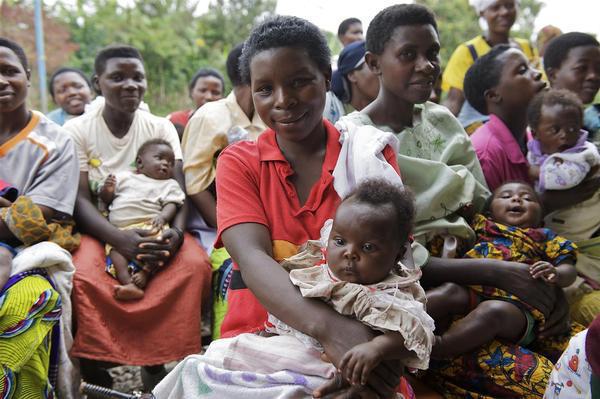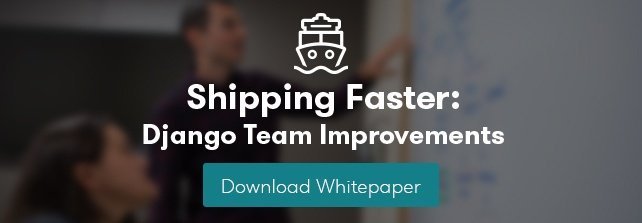
Image courtesy of UNICEF, the funders of this project.
I have had the good fortune of working internationally on mobile health applications due to Caktus' focus on public health. Our public health work often uses RapidSMS, a free and open-source Django powered framework for dynamic data collection, logistics coordination and communication, leveraging basic short message service (SMS) mobile phone technology. I was able to work on two separate projects tracking data related to the 1000 days between a woman's pregnancy and the child's second birthday. Monitoring mothers and children during this time frame is critical as there are many factors that, when monitored properly, can decrease the mortality rates for both mother and child. Both of these projects presented interesting challenges and resulted in a number of takeaways worth further discussion.
Zambia
The first trip took me to Lusaka, the capitol of Zambia, to work on Saving Mothers Giving Life (SMGL) which is administered by the Zambia Center for Applied Health Research and Development (ZCAHRD) office. The ZCAHRD office had recently finished a pilot phase resulting in a number of additional requirements to implement before expanding the project. In addition to feature development and bug fixes, training a local developer was on the docket.
SMGL collects maternal and fetal/child data via SMS text messages. When an SMS is received by the application, the message is parsed and routed for additional processing based on matching known keywords. For example, I could have a BirthHandler KeywordHandler that allows the application to track new births. Any message that begins with the keyword birth would be further processed by BirthHandler. KeywordHandlers must have, at a minimum, a defined keyword, help and handler functionality:
from rapidsms.contrib.handlers import KeywordHandler
class BirthHandler(KeywordHandler):
def help(self):
self.respond("Send BIRTH BOY or BIRTH GIRL.")
def handle(self, text):
if text.upper() == "BOY":
self.respond("A boy was born!")
elif text.upper() == "GIRL":
self.respond("A girl was born!")
self.help()
An example session:
> birth < Send BIRTH BOY or birth GIRL. > birth boy < A boy was born! > birth girl < A girl was born! > birth pizza < Send BIRTH BOY or BIRTH GIRL.
New Keyword Handlers
The new syphilis keyword handler would allow clinicians to track a mother's testing and treatment data. For our handler, a user supplies the SYP keyword, mother id, the date of the visit followed by the test result indicator or shot series and an optional next shot date:
SYP ID DAY MONTH YEAR P/N/S[1-3] NEXT_DAY NEXT_MONTH NEXT_YEAR
To record a positive syphillis test result on January 1, 2013 for mother #1 with a next shot data of January 2, 2013, the following SMS would be sent:
SYP 1 01 01 2013 P 02 01 2013
With these records in hand, the system's periodic reminder application will send notifications to remind patients of their next visit. Similar functionality exists for tracking pre- and post-natal visits.
The other major feature implemented for this phase was a referral workflow. It is critical for personnel at facilities ranging from the rural village to the district hospital to be aware of incoming patients with both emergent and non-emergent needs, as the reaction to each case differs greatly. The format for SMGL referrals is as follows:
REFER ID FACILITY_ID REASON TIME EM/NEM
To refer mother #1 who is bleeding to facility #100 and requires emergency care:
REFER 1 100 B 1200 EM
Based on the receiving facility and the reason as well as the emergent indicator differing people will be notified of the case. Emergent cases require dispatching ambulances, prepping receiving facilities and other essential components to increase the survivability for the mother and/or child, whereas non-emergent cases may only require clinical workers to be made aware of an inbound patient.
Reporting
The reporting tools were fairly straightforward, creating web based views for each keyword handler that presented the data in filterable, sortable, tabular format. In addition, end users can export the data as a spreadsheet for further analysis. These views allow clinicians, researchers, and other stakeholders easily accessible metrics to analyze the efficacy of the system as a whole

Training
As mentioned earlier, training a local developer was also a core component of this visit. This person was the office's jack of all trades for all things technical, from network and systems administration to shuttling around important data on thumb drives. Given his limited exposure to Python, we spent most of the time in country pair programming, talking through the model-view-template architecture and finding bite sized tasks for him to work through when not pair programming.
Zambia Takeaways
- It was relatively straightfoward to write one off views and exporters for the keyword handlers. But, as the number of handlers increases for the project, this functionality could benefit from abstracting into a generic DRY reporting tool.
- When training, advocate that the participant has either 100% of his time allocated or draw up designated blocks of time during the day. The ad hoc schedule we worked with was not as fruitful as it could have been, as competing responsibilities often took precedence over actual Django/RapidSMS training.
- If in Zambia, there are two requisite weekend trips: Victoria Falls and South Luangwa National Park. Visitors to Zambia do themselves a great disservice to not schedule trips to both areas.
Off to Rwanda!
UNICEF recognized that many countries were working on solving the same problem, monitoring the patients and capturing the data from those all important first 1000 Days. A 1000 Days initiative was put forward, whereby countries would contribute resources and code to a single open source platform that all countries could deploy independently. Evan Wheeler, a UNICEF Project Manager contacted Caktus about contributing to this project.
We were tasked with building three RapidSMS components of the 1000 Days architecture: an appointment application, a patient/provider API for storing and accessing records from different backends, and a nutrition monitoring application. We would flesh out these applications before our in country visit to Kigali, Rwanda. While there, working closely with Evan and our in country counterparts, we would finish the initial versions of these applications as well as orient the local development team to the future direction of the 1000 Days deployment.
rapidsms-appointments allows users to subscribe to a series of appointments based on a timeline of configurable milestones. Appointment reminders are sent out to patient/staff, and there are mechanisms for confirming, rescheduling, and tracking missed/made appointments. The intent of this application was to create an engine for generating keyword handlers based on appointments. Rather than having to write code for each individual timeline based series (pre- and post-natal mother visits, for example), one could simply configure these through the admin panel. The project overview documentation provides a great entry point.
rapidsms-healthcare obviates the need for countries to track patient/provider data in multiple databases. Many countries utilize 3rd party datastores, such as OpenMRS , to create a medical records system. With rapidsms-healthcare in 1000 Days, deployments can take advantage of pre-existing patient & provider data by utilizing a default healthcare storage backend, or creating a custom backend for their existent datastore. Additional applications can then utilize the healthcare API to access patients and providers.
rapidsms-nutrition is an example of such a library. It will consume patient data from the healthcare API and monitor child growth, generating statistical assessments based on WHO Child Growth Standards. It utilizes the pygrowup library. With this data in hand, it is relatively easy to create useful visualizations with a library such as d3.js.

Rwanda Takeaways
- Rwanda is gorgeous. We had an amazing time in Kigali and at Lake Kivu, one of three EXPLODING LAKES in the world.
No report on Africa would be complete without a few pictures...enjoy!!


